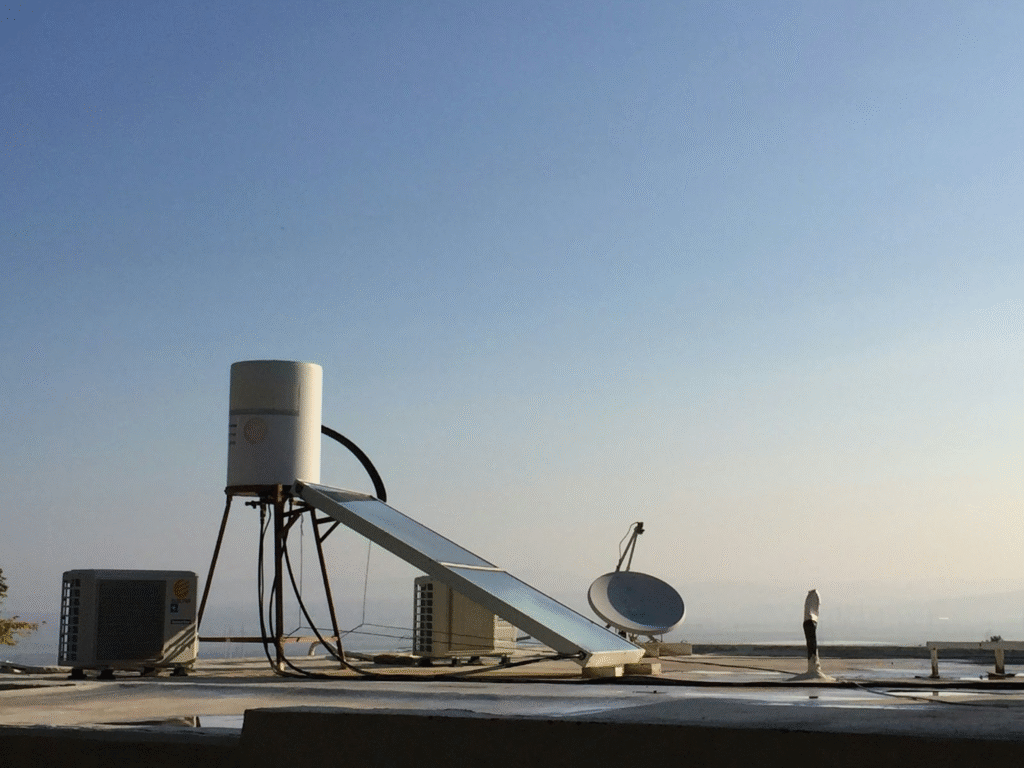
Want to relocate your boiler but nervous about the cost?
The type of boiler you currently have in your cupboard will determine whether moving it is an easy and cheap job or an expensive and challenging one.
Boiler type affects: Complexity of the work, amount of pipework and materials required, space and location constraints, time it takes to install, and overall cost of the project.
What you’ll discover:
- The Impact Of Boiler Type On Moving Costs
- Relocation Hidden Costs Most People Overlook
- Ways To Cut Down Your Boiler Moving Budget
- When Its Better To Replace Your Boiler Than Move It
- The Real Cost Breakdown Of Boiler Relocation
The Impact Of Boiler Type On Moving Costs
All boilers are different when it comes to moving costs. You might ask yourself How Much Does It Cost to Move a Boiler? It depends on what type you have and what you are moving it to.
The cost of boiler relocation can vary dramatically depending on the current system. Let’s take a look at the 3 main boiler types to see how they affect costs.
Boiler Type: Combi
Relocating a combi boiler is the easiest and cheapest option.
Reasons: They are a single compact unit that requires no additional external tanks or pipework changes. The entire system is contained in one appliance with no hot water cylinder to consider.
This makes it easy for a Gas Safe registered engineer to:
- Uninstall the boiler in the existing location
- Move and lift it to the new position
- Position and plumb it in to the same pipework and flue
- Re-connect all connections and test the system
With a combi boiler, labour costs are kept to a minimum and no extra materials or man hours are required. Most plumbers charge £300-£400 per day for boiler moving and the entire job is likely to be completed in 1 day.
But here’s the catch: moving the boiler to the next room will be easier and cheaper than relocating it from downstairs to upstairs.
Boiler Type: System
System boilers are the middle option in terms of complexity and cost. They are more expensive to move than a combi boiler but not as difficult or costly as a conventional system.
The moving considerations for a system boiler revolve around the hot water cylinder. If it can stay in the same airing cupboard then the move is straightforward. If it needs to be moved as well, then the price increases significantly.
The majority of system boiler relocations will fall into the middle to higher price brackets. You will need a competent Gas Safe engineer to work on your boiler pipework, but no changes to existing tanks or gravity fed limitations.
Boiler Type: Conventional
Conventional boilers are the most expensive to move. Here’s why…
This is the only type of boiler that has 2 additional components that may need to be relocated. A hot water cylinder and a cold water tank. And both of those usually need new pipework connections.
When moving a conventional boiler, the engineer will need to:
- Move the boiler to the new location
- Lift and install the hot water cylinder
- Measure and fit any additional pipework
- Potentially move the cold water tank as well
- Re-connect all existing connections and test
The pipework required to move all 3 components is the main cost here. For this reason, moving a conventional boiler upstairs will set you back the most at around £1,000.
Relocation Hidden Costs Most People Overlook
One of the things most people forget to factor in is not the cost of moving the boiler itself but everything else.
Things like new pipework, relocating tanks, and flue extensions are some of the biggest hidden costs. The further the distance of the move, the more materials and components you’ll need.
Building Regulations and compliance costs are another hidden expense. Your engineer needs to ensure that your boiler meets all modern regulations. Things like ventilation in the new location and clearance around the flue.
Access to the boiler can also affect the final bill. Moving furniture or lifting floorboards will incur additional labour charges.
Ways To Cut Down Your Boiler Moving Budget
Ok, so you need to move the boiler but you want to keep the costs down. Here are some ways to shave a few hundred pounds off your bill.
Keep the distance as short as possible
The closer the new location, the less labour and materials you will require. It sounds obvious, but moving the boiler to an adjacent cupboard, into a utility room, or into a garage attached to the house is a much cheaper option than a long-distance move.
Consider the timing
If your boiler is getting on in years (over 10 years old) then it might be a good idea to factor a replacement into the costs. New boilers are up to 90% more efficient and could pay for themselves in savings on your energy bills.
Bundle the work together
Doing some work in the house like a kitchen or bathroom renovation? Adding an extension? This is the ideal time to relocate the boiler. As engineers will already be on site, additional costs for labour will be limited and you can group the plumbing, electrical, and boiler work together.
Get multiple quotes
Always, always get several quotes and compare apples to apples. Not all engineers will include the same things in their prices. Some will have all materials included and disposal of the old boiler and cylinder free. Others will charge extra for everything.
When Its Better To Replace Your Boiler Than Move It
Sometimes the smart financial decision is not to move at all but to replace it.
A few key signs that indicate your old boiler should be swapped for a modern combi unit:
- Boiler age: 15+ years old and needs replacing
- Repair history: Recent repair costs are mounting up
- Efficiency rating: An A or B rated combi will save you money
- Relocation cost: If the move will cost over £800 it may not be worth it
As energy bills are now 42% higher than in winter 2021/22 a modern A-rated boiler may help keep them down.
Upgrading to a new boiler will give you a more efficient unit with lower heating costs, more compact size, and better location options. As well as improved energy efficiency, you will have advanced controls, smart features, longer warranties and parts availability.
The Real Cost Breakdown Of Boiler Relocation
So now you know the average costs, but what are you paying for?
The going rate for boiler relocation services and the labour costs are usually between £300 and £400 per day for an engineer. Materials and parts needed will set you back anything between £200 and £600. Most moves are between £600 and £1,200 and never exceed £2,000.
Boiler type determines how much you will pay with combi relocations always being the cheapest and conventional systems the most expensive.
Labour: £300-£400 per day
Materials: £200-£600, depending on move and new pipework needed
Building compliance: £100-£300 for certificates
Access/build improvements: £100-£500
Total: £600-£1,200+ for complex relocations
Making The Right Decision
Boiler type will dictate how easy and therefore how cheap your move is, but that isn’t the only factor.
Before committing to any costs or booking in work, you should also consider:
- The age and condition of your existing boiler
- How much space you will gain
- Whether it will improve heating efficiency
- If the costs will be outweighed by the benefits
Summary
The type of boiler you have in your home is the most important factor that will determine how much it costs to move.
Combi boilers are the cheapest to relocate, and conventional systems are the most expensive.
Sometimes the best option is to replace rather than move your boiler. If it is over 15 years old, recently had multiple repairs, not energy efficient, or the moving costs are over £800 it’s time to upgrade to a new modern combi boiler.
But remember, always get multiple quotes and understand all the costs before making a final decision.



